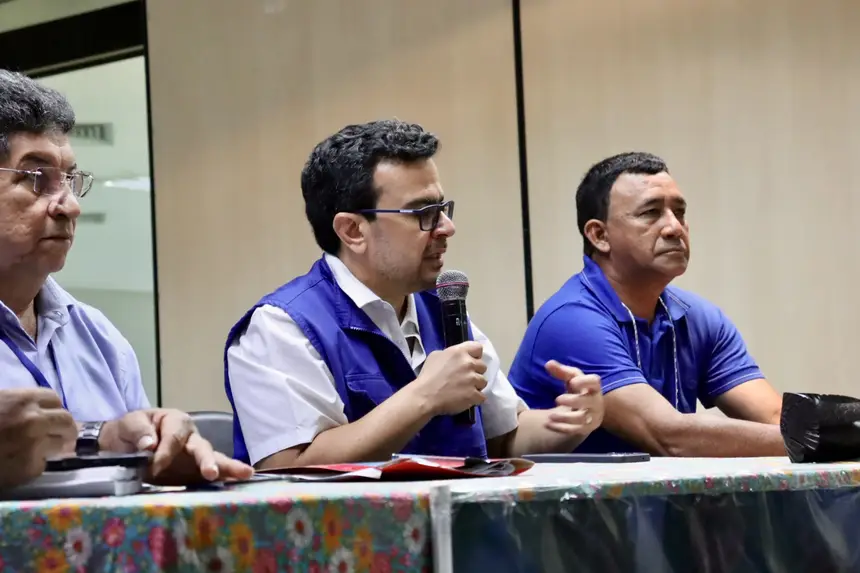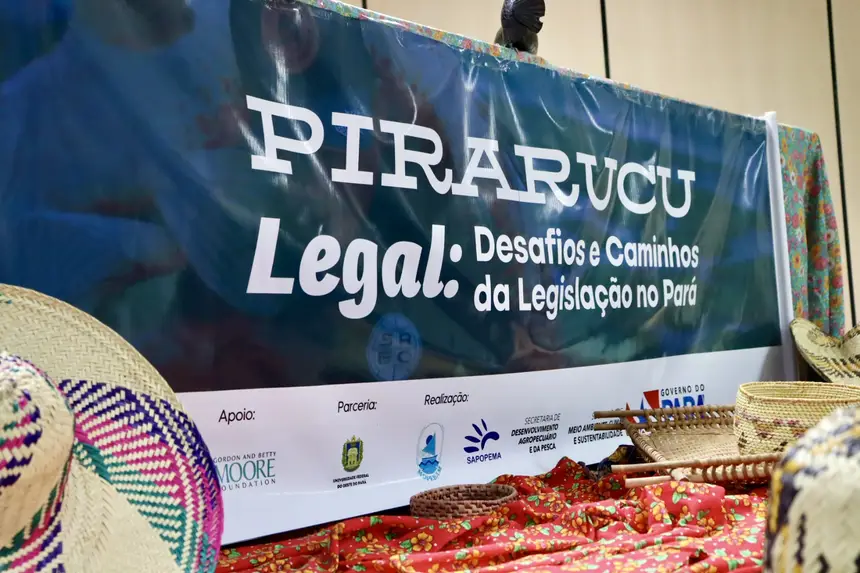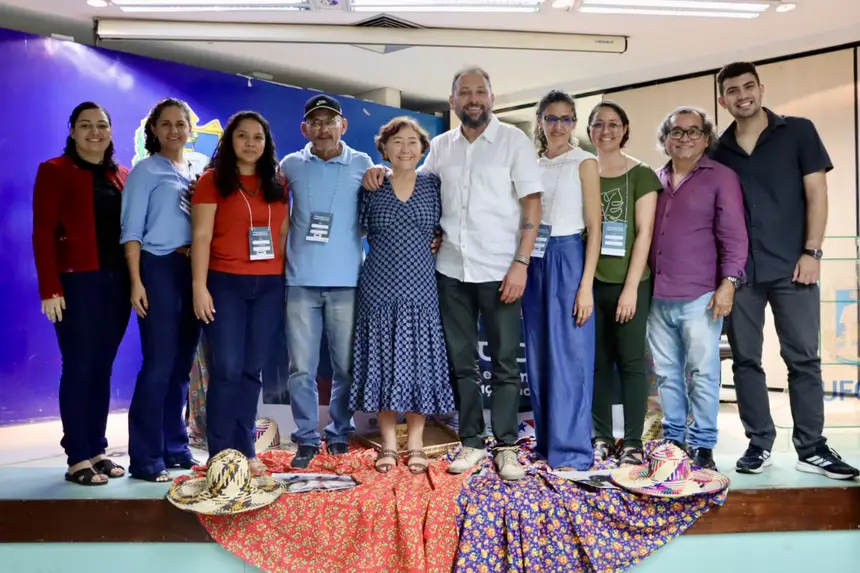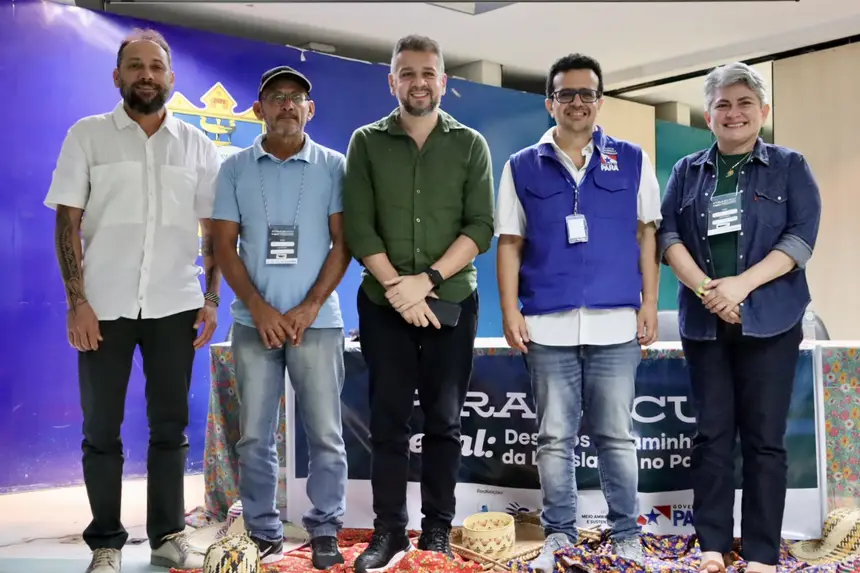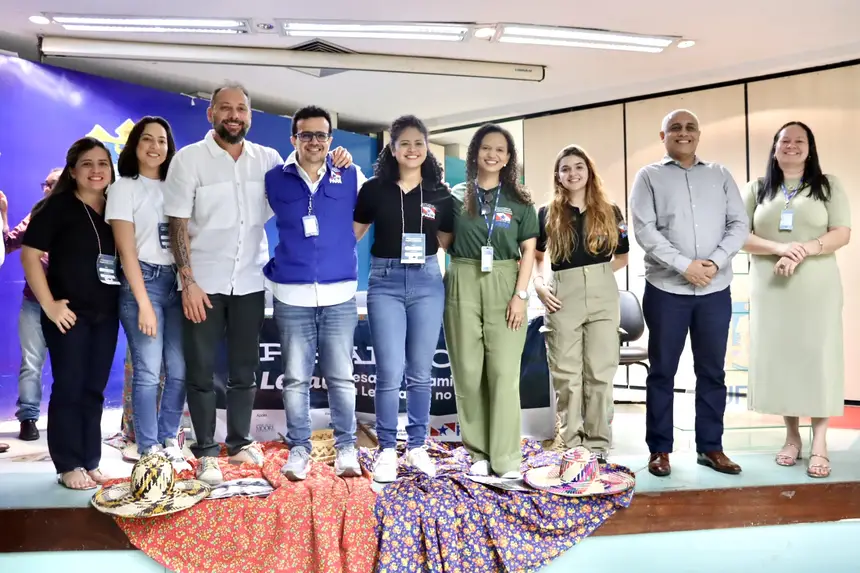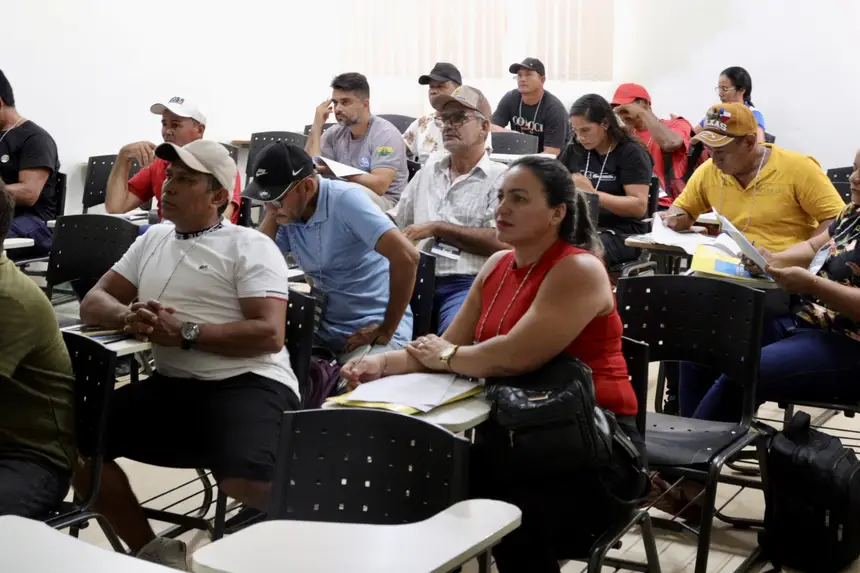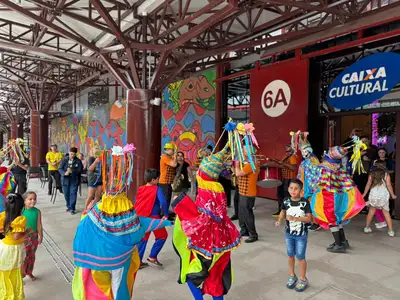Semas promotes debate on the regulation of pirarucu fishing and strengthens Fishing Agreements in Santarém
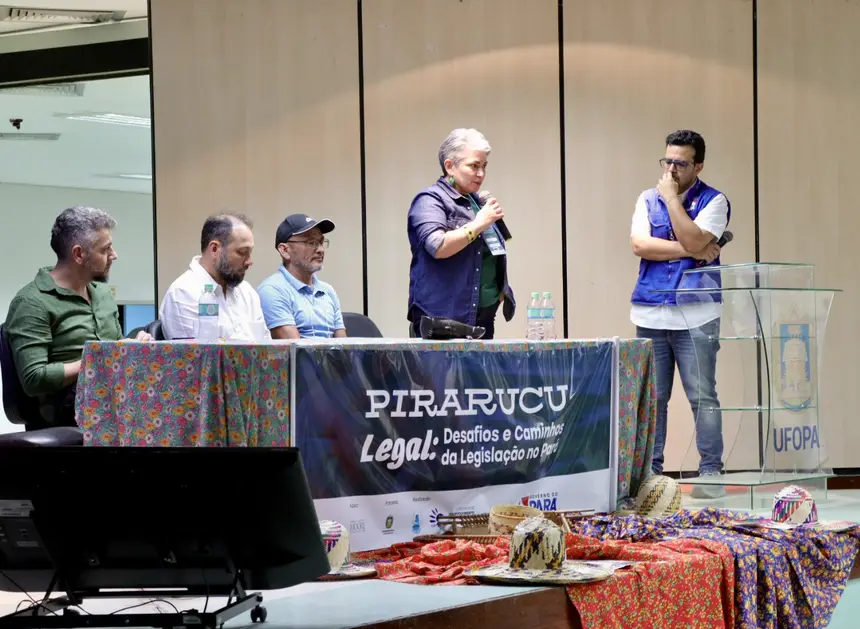
The State Secretariat for the Environment, Climate and Sustainability (Semas) held, last Tuesday (15), at the campus of the Federal University of Western Pará (Ufopa), in Santarém, the event "Legal Pirarucu: Challenges and Paths of Legislation in Pará." The meeting aimed to promote the debate on the regulation of managed pirarucu fishing (Arapaima gigas) in the state, bringing together artisanal fishermen and fisherwomen, public managers, researchers, and representatives of civil society organizations.
The legislative proposal seeks to establish clear guidelines for the sustainable management of pirarucu in Pará, through the definition of control instruments and fishing regulations. The regulation aims to ensure the conservation of the species, recognized for its ecological, economic, and cultural importance to traditional Amazonian communities.
The Deputy Secretary of Environmental Management and Regularity of Semas, Rodolpho Zahluth Bastos, participated in Panel 2 – Challenges of the Sustainable Market for Pirarucu, which included the participation of the startup Yara Couro da Amazônia, which transforms fish skin waste into leather; activist and chef of the restaurant Casa do Saulo, Saulo Jennings, who works with sustainable management of pirarucu and develops actions with local communities for the benefit of people and the environment; and Daniela Cardoso, from the Pirarucu Project of Mexiana, responsible for the production and distribution of native pirarucu.
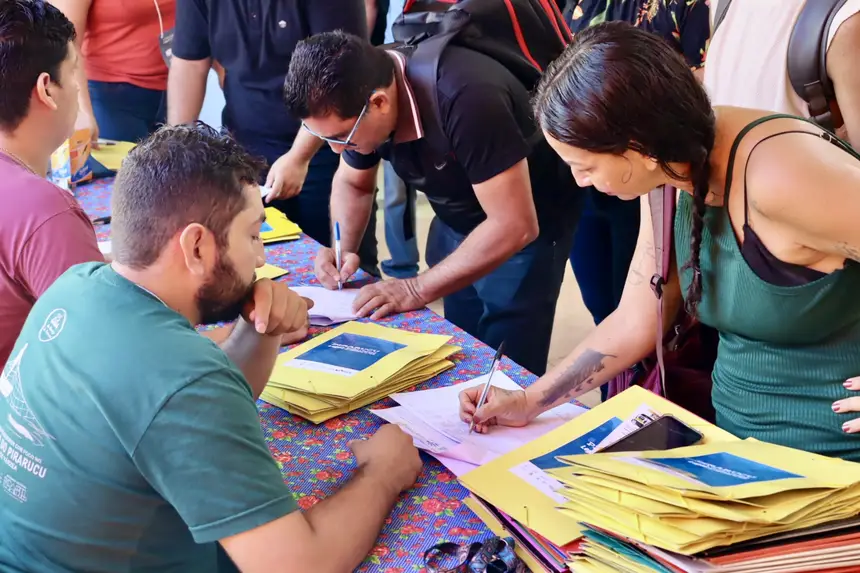
The panel addressed the different uses of pirarucu and how communities manage the species. Experiences were shared that demonstrate the potential of the local bioeconomy, such as the use of fish skin, which generates income and added value for communities. The challenges faced in the commercialization of the fish, especially in the restaurant market, were also discussed. The diversity of data and experiences shared significantly contributed to the debate and the collective construction of solutions.
Participants highlighted the urgency and relevance of regulation to ensure legal security for communities and expand the reach of fish commercialization.
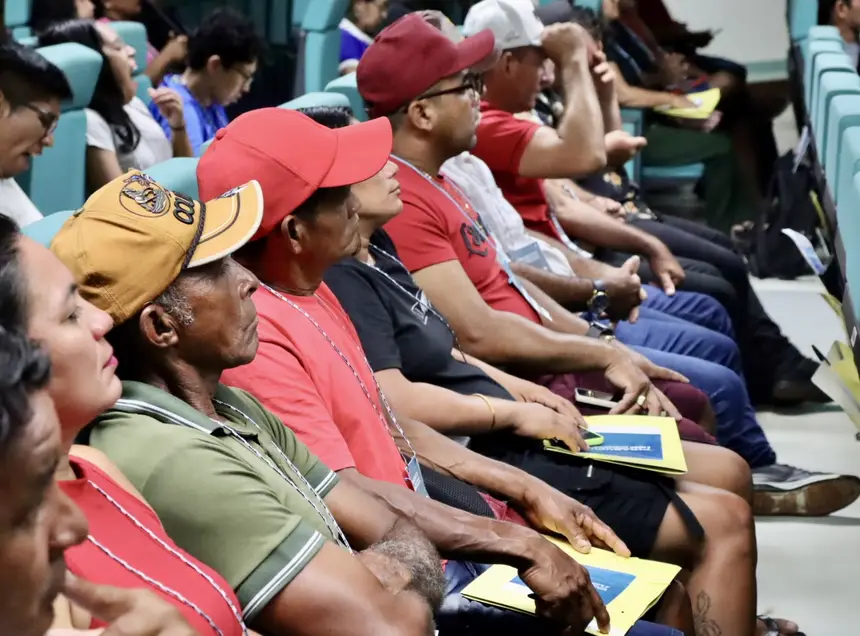
According to Raimundo Augusto, a representative of the Santa Maria community and the Regional Fishing Council of the region, the legislation will bring direct benefits to consumers. "With regulation, we will be able to sell to Santarém and other states with security, offering a quality product with guaranteed origin."
In addition to strengthening the work of fishermen and traditional communities, regulation will also contribute to the conservation of fish stocks. "This legislation is fundamental. It will allow for the increase of stocks and strengthen the sustainable management of pirarucu in Pará," he concluded.
During the program, the Fishing Agreement of the communities in the Agroextractivist Settlement Project (PAE) Tapará, located in the municipality of Santarém, was formally delivered. Created in November 2006, the settlement is focused on the sustainable management of natural resources, with an emphasis on pirarucu fishing. The ratification of the agreement represents an important milestone for the traditional peoples of the region. The action was promoted under the Regulariza Pará Program, in partnership with the Society for Research and Protection of the Environment (Sapopema) and the Movement of Artisanal Fishermen of Western Pará and Lower Amazon (Mopebam).
The communities of Barreira, Boa Vista, Correio do Tapará, Costa do Tapará, Pixuna, Santa Maria, Santana, Tapará Grande, and Tapará Miri are part of the agreement, signed with the aim of conserving, preserving, and maintaining fish stocks, the environment, and the quality of life of the people living in the region.
"The regulation of managed pirarucu fishing is a historical demand of the communities and an essential step to ensure the sustainable use of our natural resources. By promoting this dialogue and formalizing agreements like that of Tapará, we advance in the conservation of the species, ensuring the fishing way of life and the social dynamics of the main riverside bioeconomy," highlighted Secretary Rodolpho Bastos.
The fisherman and representative of the fishing nucleus of the municipality, Ivaldo Pereira, expressed the emotion and importance of the moment. "The feeling of receiving the fishing agreement is one of great joy, of great satisfaction. We have been working over time so that we can have fishing regulation here in our region. The ratification is a great achievement, as we now have a legal instrument that supports us in the management of fish stocks," said the fisherman.
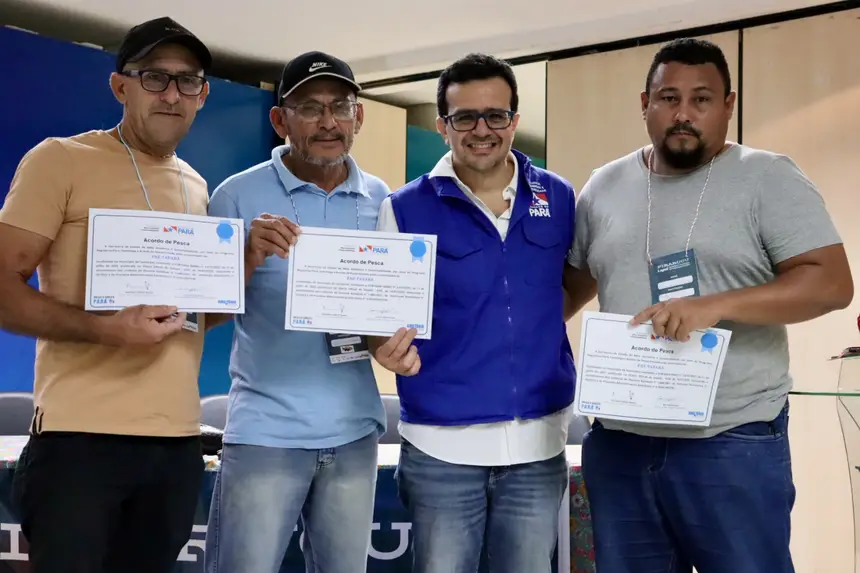
The regional president of fishing in Tapará, Rionaldo dos Santos, reinforced the historical nature of the achievement. "It is the long-awaited fishing agreement for our Tapará region. We fought hard for this moment. This agreement brings security for our population, for our fishermen, and for the management of pirarucu," highlighted the president.
Text: Mário Gouveia/ Ascom Semas


